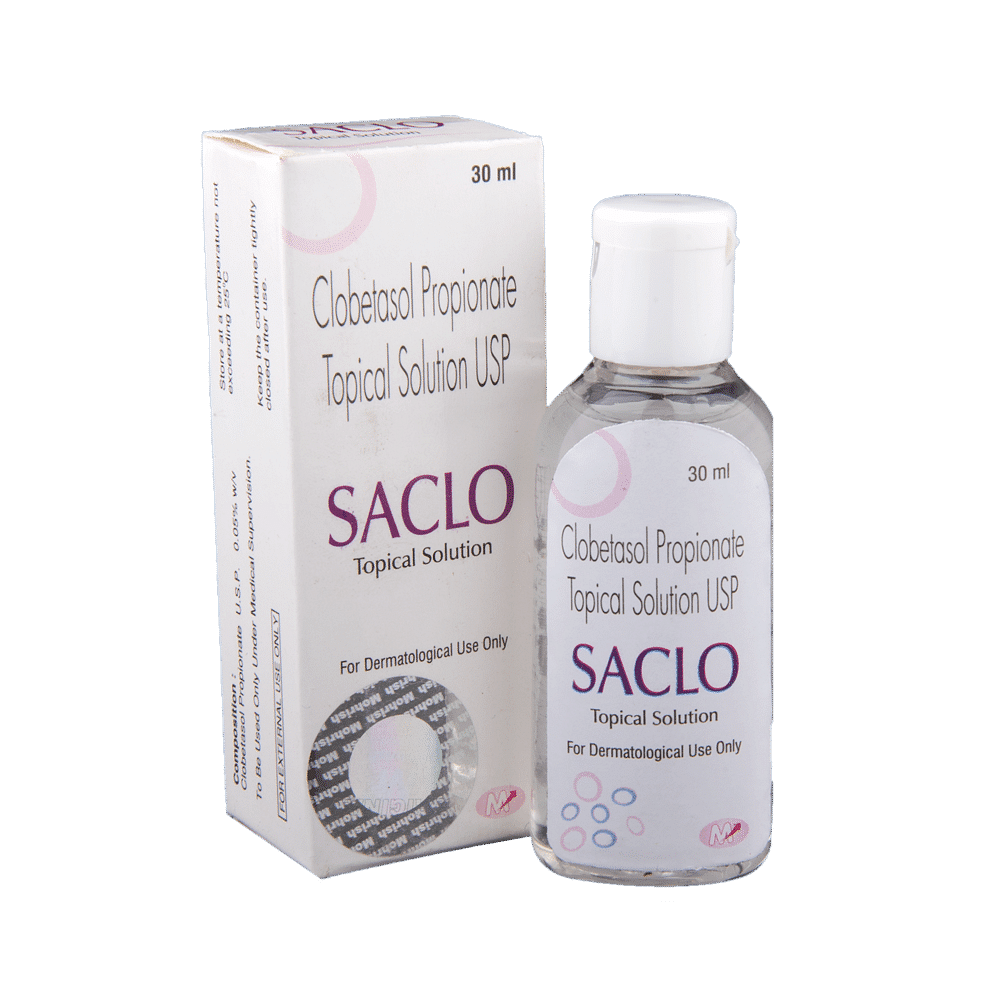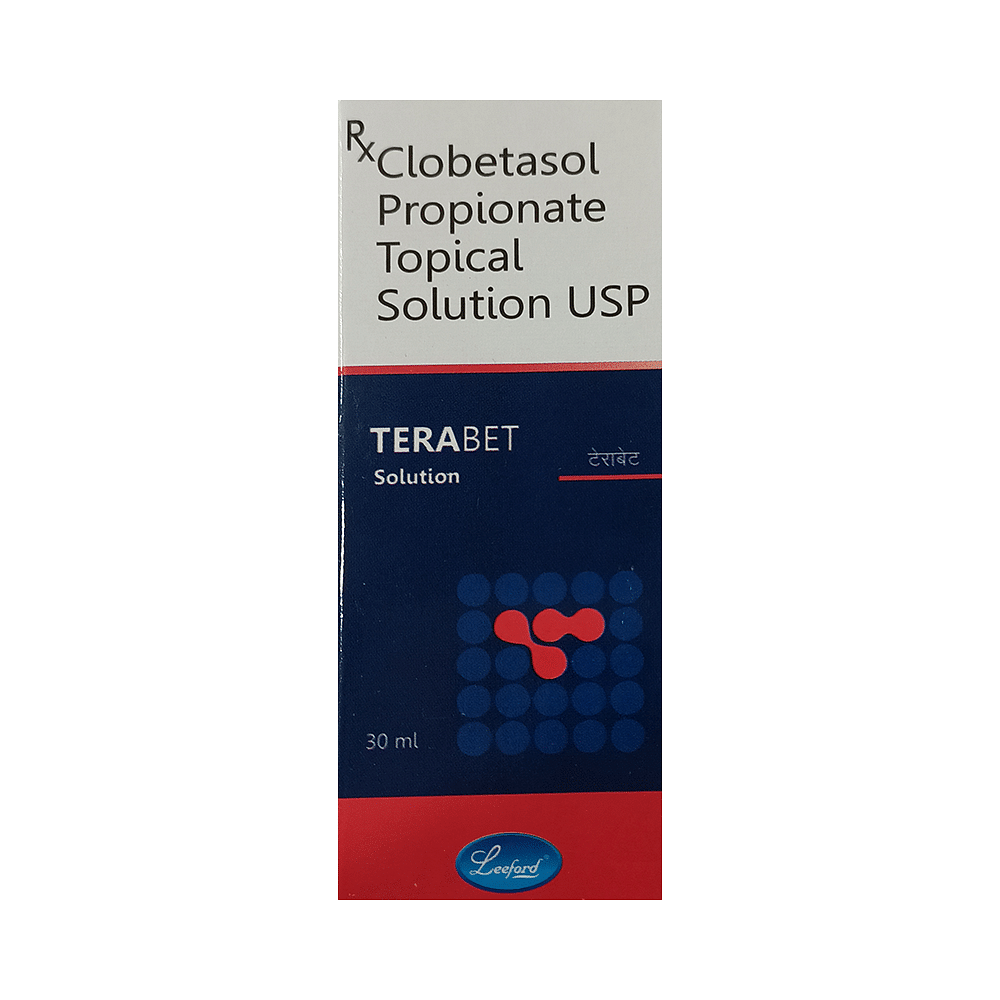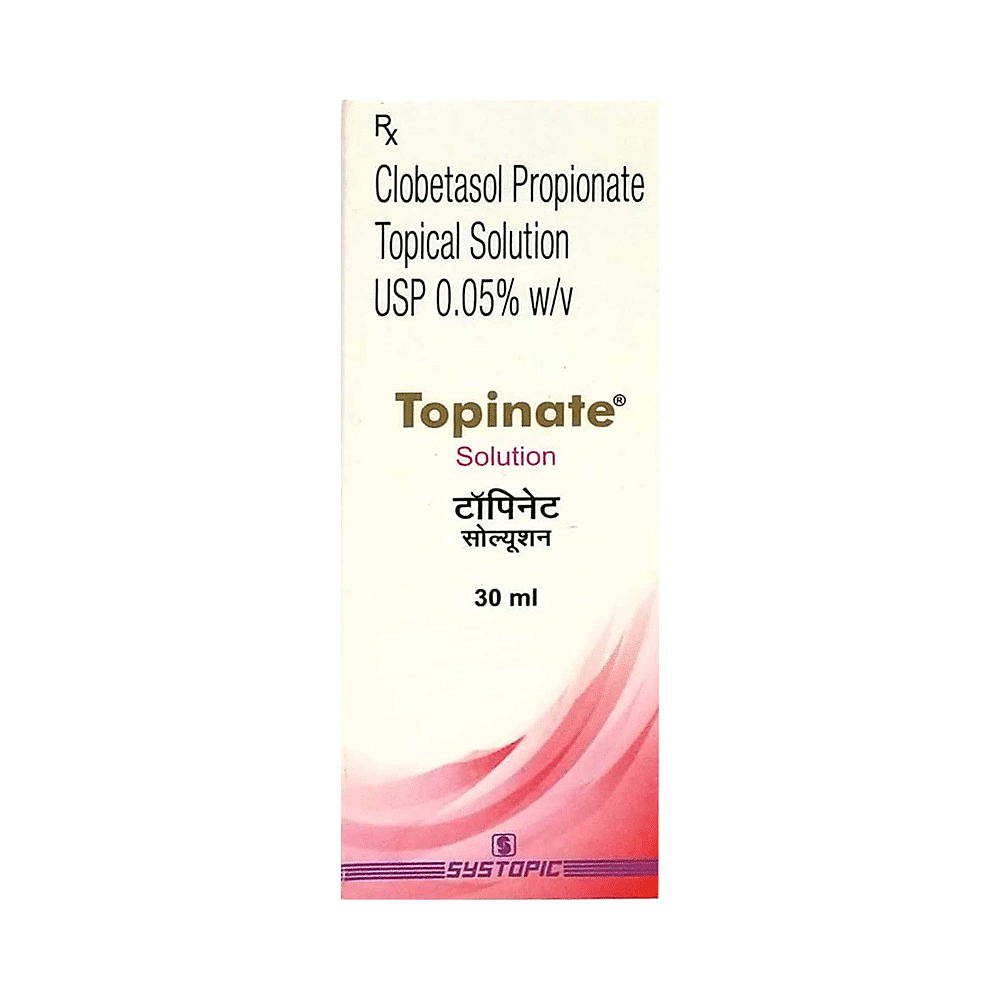
Clovate Solution
Manufacturer
Dermo Care Laboratories
Salt Composition
Clobetasol (0.05% w/v)
Key Information
Short Description
Clovate Solution is a steroid used to treat various skin conditions such as dermatitis, eczema, and allergies.
Dosage Form
Solution
Introduction
Clovate Solution is a group of medicines called steroids. It is used to treat various skin conditions such as dermatitis, eczema, and allergies. It works by reducing swelling, redness, and itchiness of the skin and prevents further irritation.
Directions for Use
Use this medicine in the dose and duration as advised by your doctor. Check the label for directions before use.
How it works
Clovate Solution is a steroid. It works by blocking the production of certain chemical messengers that make the skin red, swollen and itchy.
Quick Tips
It should be applied to the affected areas as a thin film two or three times daily or as advised by your doctor. Don't use it more often or for longer than advised by your doctor. Don't cover the area being treated with airtight dressings such as bandages unless directed by a doctor as this may increase the risk of side effects. If you think the area of skin you are treating has become infected you should stop using Clovate Solution and consult your doctor. Consult your doctor if your skin condition has not improved after four weeks of treatment. Do not use it for more than 4 consecutive weeks at a time.
Related Medicines
Frequently asked questions
Can Clovate Solution be used for a long time?
No, Clovate Solution should not be used for a prolonged period. The doctor typically prescribes it for 2 consecutive weeks only. However, the treatment can be extended for chronic inflammatory conditions. It is essential to consult your physician before using this medication.
Does Clovate Solution cause severe skin reactions?
Severe skin reactions are rare with Clovate Solution. As an anti-inflammatory drug, it is used to treat skin diseases, skin reactions, and eczemas. However, skin reactions can occur in individuals who are hypersensitive to Clovate Solution. It is crucial to leave the affected area open after applying Clovate Solution, as using occlusive dressings can lead to skin reactions. Inform your doctor immediately if you experience any skin reactions.
Can Clovate Solution be used on the face?
No, Clovate Solution should not be used on the face. Additionally, it should not be used on the axillae (armpits), groin, or if there is atrophy (wasting away of tissues) at the treatment site. In certain circumstances, it may be considered for use by doctors. It should only be used after consultation with your physician and, if possible, the application on the face should be limited to a maximum of 5 days.
Can Clovate Solution be applied to children?
Clovate Solution is not recommended for use in children less than 1 year of age. It is also not recommended for use in older children and adolescents as the side effects are more common in this population. In the pediatric population, there is an increased risk of immune system suppression, which may make the child prone to other diseases and atrophic changes. However, in rare cases, the doctor may recommend this medicine, but the treatment is usually limited to 5 days and the therapy is reviewed weekly.
Can we use Clovate Solution in infections?
Clovate Solution is not an antimicrobial or antifungal agent. It is a steroid medication. It should not be used in infections as it suppresses the immune system and increases the risk of infections. Bacterial infections may worsen if the infection is covered with a dressing after using Clovate Solution. If the inflammatory lesions become infected or there is any spread of infection, consult your doctor immediately. The doctor will withdraw the use of Clovate Solution and provide appropriate antimicrobial therapy.
Can I stop taking Clovate Solution when my symptoms are relieved?
No, do not stop taking Clovate Solution and finish the full course of treatment even if you feel better. Your symptoms may improve before your treatment is complete. Stopping Clovate Solution before your treatment is completed can bring back your symptoms.
Does Clovate Solution cause dangerous skin reactions?
Local skin reactions are rare with Clovate Solution. As an anti-inflammatory drug, it is used to treat skin diseases, skin reactions, and eczemas. However, skin reactions can occur in individuals who are hypersensitive to Clovate Solution. It is essential to leave the affected area open after applying Clovate Solution, as using occlusive dressings can lead to skin reactions. If not caused by the medicine itself, sometimes reactions are also caused by the added excipients with the medications. Inform your doctor immediately if you encounter any skin reactions.





